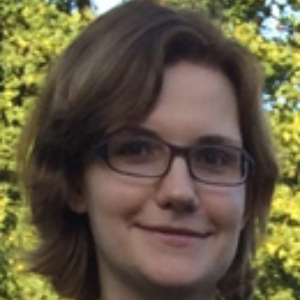Title : In vitro effect of acetylcholinesterase inhibitor donepezil on prostaglandin E2 and thromboxane B2 concentrations and on cyclooxygenases expression in THP-1 macrophages
Abstract:
Pathogenesis of neurodegenerative diseases (i.e. Alzheimer's disease) is supposed to be associated with neuroinflammation involving the activation of i.e. macrophages. Macrophages are a diverse group of cells which includes microglia in the central nervous system. Beyond macrophages prostaglandin-peroxide synthases - cyclooxygenases: cyclooxygenase 1 (COX-1) and cyclooxygenase 2 (COX-2) play a key role in inflammation. One of the most commonly used drugs for the treatment of Alzheimer’s disease is donepezil, a selective noncompetitive acetylcholinesterase inhibitor. The anti-inflammatory properties of donepezil on microglia have also been demonstrated, suggesting a more complex mechanism of their action. The aim of this study was to examine the effect of donepezil on the concentrations of prostaglandin E2 and thromboxane B2 and on the activity and expression of cyclooxygenases in THP-1 macrophages. The experiments were performed using macrophages obtained from the THP-1 monocytes. The monocytes were cultured in RPMI-1640 medium with the addition of 10% PBS and penicillin and streptomycin, at a temperature of 370C. The macrophages were obtained after 24 hours of incubation with PMA. Donepezil was used at the concentrations of 20 ng/ml (D1) and 100 ng/ml (D2). Drug concentrations were selected on the basis of plasma concentrations of patients receiving the lowest and maximum recommended doses. To the estimation of the PGE2 concentration in cell supernatants a PGE2 immunoassay kit was used. TXB2 concentration was determined by TXB2 immunoassay kit. Cyclooxygenases expression was determined by confocal microscopy. Expression of Ptgs1 and Ptgs2 genes was estimated by qRT-PCR method. In statistical analysis Shapiro-Wilk W-test and Wilcoxon matched-pair test were used. The value of p<0.05 was considered significant.Exposure to 20 ng/ml of donepezil (D1) resulted in decrease in the concentration of PGE2 and decrease in the TXB2 concentration in cells supernatants. The decrease in COX-1 and COX-2 proteins expression was confirmed by fluorescence microscopy. Reduction of the COX-1 and COX-2 mRNA expression was also observed. In the cells cultured with donepezil at the higher concentration (100ng/ml) (D2) decrease in PGE2 and TXB2 concentrations was observed. Fluorescence microscopy confirmed a significant decrease in the COX-1 and COX-2 proteins expression as well as COX-1 and COX-2 mRNA expression. The results of this study suppose the anti-inflammatory effects of acetylcholinesterase inhibitor donepezil used both in lower and higher concentrations. This observation is valuable because in current literature there are no reports on the influence of donepezil, a key medicament in the treatment of Alzheimer's disease and other types of dementia, on the levels of PGE2 and TXB2 and on the expression of protein and mRNA of cyclooxygenases.




